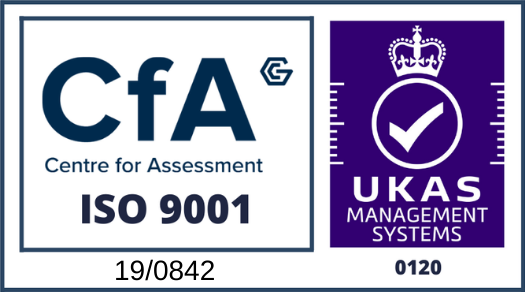Since the first IBM PCs began appearing across offices in the 1980s, technology has continually changed how we conduct business and think about commerce. Indeed, technology has changed how we live.
A system that began as a way to complete administrative tasks is, today, a dense web of data, information and resources. As a 1985 Harvard Business Review article put it: “information technology is more than just computers.”
The same sentiment holds true today, with businesses across the world leveraging a variety of digital solutions to achieve success. There are many technologies that businesses are using to improve operations. Everything from augmented reality to internet of things and machine learning to mobile applications can benefit businesses.
Digital transformation encompasses all of these innovations. Through technology, businesses have the opportunity to streamline internal operations, tap into customer needs and create better solutions for their market.
Together these areas allow businesses to optimise their competitive advantage; their ability to outperform against competitors. In this article, we’ll show how technology provides the key to achieving this competitive advantage.
Understanding your competitive advantage
Conducting business analysis is a great way to find out where you operate and where you can offer value to customers. With help from a digital transformation partner, companies can analyse their current working processes. Analysis with this provider will help identify your business's strengths and also areas that require development.
For example, a company may be adept at creating client communications, but face bottlenecks when it comes to converting these leads. An analysis of a company’s CRM workflow would identify both their existing strengths, but also clarify where they could improve.
It might be that the company is being held back by inefficient software like spreadsheets. Inept software can prevent businesses from sufficiently managing leads as they go through stages of the CRM process.
Businesses who begin to understand their competitive advantage will realise how technology can be used to tap into this edge. In the above example, the company would likely benefit from a bespoke CRM platform. A platform like this would allow the business to manage contacts more effectively.
The journey towards this state does not need to begin with major operational changes. After your business analysis, you can start planning your roadmap to include projects with quick wins. These wins help maintain morale and maximise long-term success.
The right technology can help your business in a variety of ways. Examples of benefits include becoming more personal with clients, completing transactions efficiently, accessing untapped markets or even launching a new service.
Allows you to streamline internal operations
Competitive advantage is also about how you optimise your internal operations. Improving these processes will ensure that your workforce can use the most effective solutions in their daily duties. For some businesses, their competitive advantage is skilled labour or great customer service. The best way to maintain this edge is by ensuring that employees have the right tools to succeed in their role.
Competitive advantage is harboured through seamless internal processes which allow teams to provide excellent services to customers. It’s an inside-out approach that technology can support.
For Aptus Utilities — a national energy & utilities provider — their priority was finding an alternative solution to their paper-based business processes. Faced with these inefficient ways of working, employees were unable to carry out specific tasks without workarounds, preventing optimum operations.
Aptus benefited from a robust management portal that they use for all key aspects of project delivery. The capabilities of this technology extends from the tendering process to installation and service monitoring. These features enable financial reporting and planning across multiple stages of a project.
With this technology, the company's internal processes have been sped up and efficiencies improved. The platform centralises critical data and makes it accessible to employees. Overall, these tailored solutions have allowed Aptus to provide an excellent service while growing their business even further.
Holistic digital transformation will transform the processes within your organisation both internally and externally. Developing internal processes first will help you focus on those factors that will drive performance and benefit the whole organisation.
Gives you access to data
Information is one of the core competitive advantages for any business. All businesses operate by arbitrating information on product or service development, pricing, and where to focus their marketing efforts. By holding information in such high regard, businesses should also make how they use technology a priority.
Businesses can generate more information about customer activity through digitisation, which allows them to make better strategic decisions. As a business, intuitive thinking is still important for those initial thought processes and ideas. However, this approach should not be the only basis for your decisions.
Having the tools to capture data is crucial here. With essential data available via dashboards or similar analytics software, real-time reporting becomes achievable. This data then informs how decisions are made.
Companies can leverage more advanced technology like Artificial Intelligence as they become comfortable with large data sets. Using AI technologies, businesses can see, read and analyse data. Delegating data analysis tasks to machines allows companies to access large amounts of data at a lower risk of human error.
This type of digital data capture is becoming widespread as process automation takes hold. Businesses can stay competitive by maintaining secure management of this data. Organisations should work on planning and delivering strategies for data cleansing, transformation and warehousing. These strategies will then identify data management approaches that can power AI and machine learning solutions.
Customer experience
Quality customer experience (CX) is a crucial part of earning your customers’ loyalty. Although many businesses strive for a customer-first approach, competing pressures and priorities often leave the customer overlooked. McKinsey estimates that companies who focus on both the customer and IT improvements can gain 20-50% of the cost base.
As with digital transformation, CX is best understood as a whole. Keeping your customers engaged doesn't mean releasing new products every month. Customer support, communications, and focused product updates are also important elements of high-grade customer experience.
These few examples also indicate the variety of ways in which companies can innovate their customer experience through technology. For example, if your customer support team is inundated with requests and queries via email, you might install a chatbot. Taking this action will create a more direct point of contact between customers and support.
One luxury housebuilder has made use of 3D modelling technology to provide customers with a new way to select interior products. The technology also provides a solution for those customers who either live far from a property or cannot make physical viewings.
A digital customer experience revolves around how your customer can successfully engage with your services. The ‘digital’ simply indicates the tools that you can use to amplify this experience.
Keeping competitive
Here we have shown a few of the ways that technology can be used to achieve competitive advantage. The forerunners of today's digital-first landscape are those who can harness technology to create value.
You will be better able to measure success if you understand the role that technology plays within your company. This is true whether you want to improve customer experience, develop new products or utilise company data.
Audacia is a trusted software development company in the UK who has helped clients automate their processes through intuitive technology solutions.
Interested in finding out more about how your business can benefit from digital transformation? Get in touch with us today on 0113 543 1300, or email [email protected]


